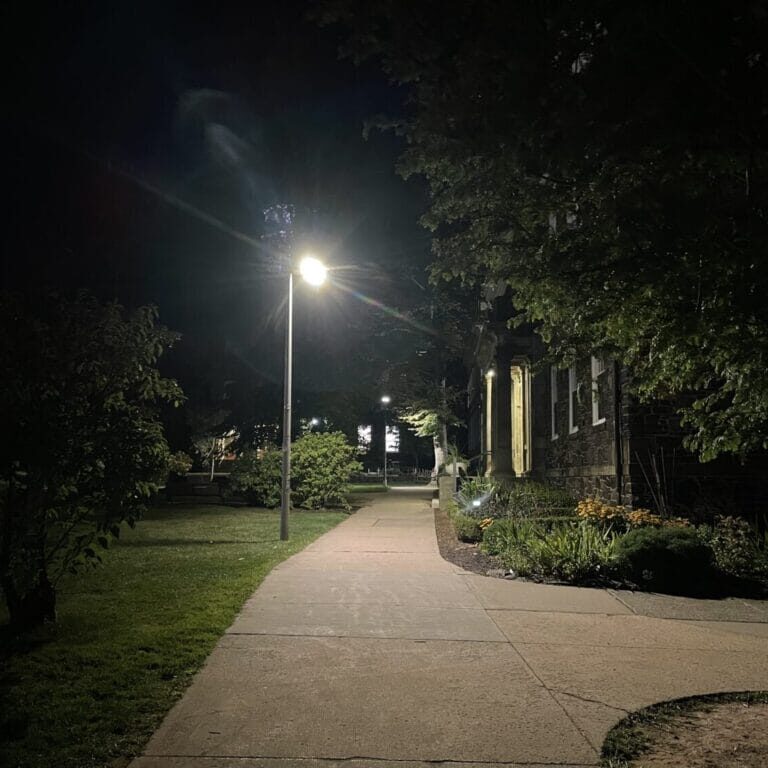
Are students safe on campus?
What are Halifax universities doing to protect their students?
This story contains mentions of hazing, sexual assault and overdose. Those in need of support can call the Halifax crisis line at 1-888-429-8167 or contact the support services available through Dalhousie and King’s (listed at the end of this article).
Back to school
While incoming undergraduates open their syllabuses and attend orientation activities, there will surely be anxiety surrounding course loads, finding classes or making friends.
This is where their fear should end. On university campuses, students should not feel concerned for their personal safety. However, North American studies have shown that the first weeks of school can be the most dangerous for incoming and returning post-secondary students, with reports of high alcohol consumption, overdoses, hazing and sexual assault.
Our schools in Nova Scotia are not immune to these dangers. So, what are Halifax universities doing to protect their students? And what can students do to protect themselves?
King’s Patrol
An influential safety resource for Nova Scotia students is the student patrol at the University of King’s College. The student patrol team does regular rounds on campus, checking for anyone in emotional or medical distress and providing support as needed.
Residence Housing Coordinator Gavin Baumbach is responsible for Student Patrol. He explains that in the early days of school, patrol responds primarily to noise violations, often coming from parties and other gatherings that involve alcohol consumption. Patrollers are trained in providing an alcohol assessment to assist with navigating the dangers of potential alcohol poisoning, as well as trained in basic first aid and the delivery of Naloxone.
Although they can provide initial support for more heavy topics like suicidality, sexualized violence, racialized violence or discrimination, patrollers are not trained counsellors. They are there to help the students navigate their next steps should they need more assistance.
“Think of patrol as your friendly campus nightlife support team who can triage and direct students to other support staff on campus,” Baumbach says.
What can students do to stay safe?
Campus resources like patrol are beneficial, but students will often find themselves in situations where they are not around. Baumbach shared some other tips for students to stay safe on campus this fall.
He advises it is important to have good communication and set boundaries with your friends, peers, partners and roommates, and share if and when those boundaries have been crossed.
To anyone engaging in gatherings where alcohol is being consumed, Baumbach recommends not leaving drinks unattended, staying hydrated, eating enough food before drinking and finding a buddy to walk home with.
He also notes that it’s helpful to connect with the students on the patrol team so that you won’t hesitate to look to them should you need to.
“Patrollers are all really lovely people who put support first, when possible, over enforcement,” he says. “Say hi and chat with them on rounds . . . If you don’t ask for help, they can’t be there to help and support you.”
Is this enough?
The resources provided by Halifax universities are essential in ensuring students feel safe while attending. However, many of the resources are retroactive, such as counselling offered after an incident has occurred. That is not enough.
To see the changes we need and ensure our campuses are safe places for people to learn without fear, we must find ways to prevent harmful events before they disrupt lives. Strategies like those Baumbach mentioned are essential for students to be aware of the potential consequences of the activities in which they are engaging. But for a truly safe campus, the culture must change too. Threats of physical and sexual violence must be eliminated—and issues of that magnitude cannot be fixed quickly.
Providing resources for students is a good first step, but as incoming students move in and classes begin, what comes next?
Resources
Much work still needs to be done to make Canadian campuses a safe place for all. But for now, there are resources out there should students need them.
- DalSAFE
- Sex Education and Resource Centre
- King’s Sexual Health and Safety Officer
- Human Rights and Equity Services
- Good 2 Talk: 1883-292-3898
- Substance Use Support Services
- Avalon Sexual Assault Centre: 902-422-4240
- Sexual Assault Nurse Examiner: 902-425-0122
- Mi’Kmaq Crisis and Referral Line: 1-855-370-2099
- Halifax Victim Services
- Men’s Helpline: Dial 211
- 2SLGBTQ+ Advisor
- Free training course for those interested in learning more about supporting sexualized violence survivors.






